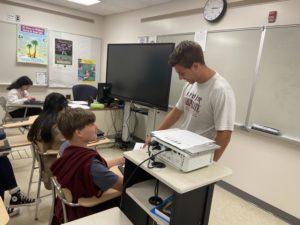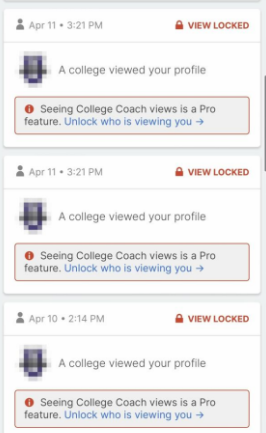Students show mixed opinions towards schedule changes
November 4, 2021
Coming off an improvised school year, Hereford took the opportunity to revamp the way the school functions by implementing a new enrichment format and three lunch periods instead of two. Some changes were better received than others. One of the more controversial changes in the school, not only during the Covid era but throughout Hereford’s history, has been its schedule.
While the current schedule is A-day B-day format, Hereford has also had the semester format, and a mixed schedule. Almost all current HHS students have seen some form of each schedule type: Eight classes a day in middle school, semester during COVID, and A-B currently.
“We have 1300 students and 1300 families, all with unique perspectives,” Assistant Principal, Robert Covert said.
Covert believes it is crucial for all student voices to be heard in the process because they are most affected by the decision.
In August of this year, a committee was formed to determine the best possible schedule for the 2022-23 school year. Members of the committee included two Assistant Principals, Department Chairs of Music, Science, Social Studies, Math, Special Education, representatives of all other departments, as well as students from each grade level.
At first, debating a schedule change seems simple, however, when considering factors such as AP testing, two-credit courses, student workload, special education, and the fine arts, that issue becomes more complex.
“I didn’t realize how complicated the issue was,” Jonathan Espinoza (’25), a member of the committee, said.
During the 2020-21 online school year, Hereford used a Semester schedule,
Pros of a Semester schedule seem obvious, more manageable, and fewer classes make it easier to balance extracurriculars.
“I feel like it’s easier to work with four classes than eight,” Carson Franklin (’24) said.
This schedule also allows a student to take multiple levels of the same course in one year. At the same time, however, students are at a disadvantage for AP tests in the spring regardless of when they took their course. Fall classes have a large gap from the first semester to the AP test and Spring classes have less time to learn content. Departments that offer courses requiring a full year of instruction like Fine Arts and Special Education suffer as well.
Music, when run year-round, offers a place for students to feel comfortable and explore their passion year-round rather than for one semester.
“The music department is a home to many of these kids,” Music department chair, Janet Sovich said.
While it would be ideal for these classes to be offered both semesters, staffing, budget, and schedule concerns limit the realism of this proposal.
Hereford has historically been one of the only BCPS schools to use a schedule with a maximum of four classes a day rather than the traditional eight class day. Many students claim an A-B schedule helps their stress levels.
“Classes are much more enjoyable if you don’t have them every day,” Maximillian Mattiko (’23) said.
Regardless of the format, managing eight classes at a time can prove difficult for some students and continuously comes up as the main critique of the A-B schedule.
Throughout the Schedule Committee’s meetings, the group established the need for time management, study skills, and an overall decrease in workload is needed for the A-B schedule to be viable for students.
Hereford is already implementing these tactics and plans to continue this process in hopes of creating an environment more suited for extracurricular activities.
“We are adding a college readiness course, in addition to AVID, which would help reduce that stress,” Sovich said.
Student participation in extracurricular activities has been a struggle recently due to Enrichment changes. This is Hereford’s first year with Enrichment for all students being after first period instead of second and lunch beginning after second period. This, coupled with the shift from a free period to a strictly academic enrichment, has sparked debate among students and teachers.
“There were students who weren’t getting the help they needed and felt like they could just hide in the auditorium,” Covert said.
Most teachers and a handful of students welcome the new format, claiming it helps them complete work, get help when they need it, and break up the first half of the day.
“It gives me extra time to do my work and meet with teachers,” Jacob Sienkiewicz (’22) said.
Students and teachers against the new enrichment are concerned, however, that it is doing more harm than good with student’s time management.
“I’ve had to give up clubs and honor societies because I can’t make the required meetings after school,” Alden Goetz (’22) said.
Goetz is planning on not participating in a winter sport to have enough time to participate in extracurriculars.
“Students shouldn’t have to sacrifice because they want to get involved,” Goetz said.
Enrichment is a time for students. They are the ones affected most by its scheduling and are encouraged to reach out and voice their opinions on the matter.
“Come be a part of the process,” Covert said, “I encourage [anyone with concerns] to be involved in any way they can.”
Hereford is a unique community with unique perspectives. While it’s impossible for each member to be completely satisfied, making those voices heard is beneficial to everyone.






